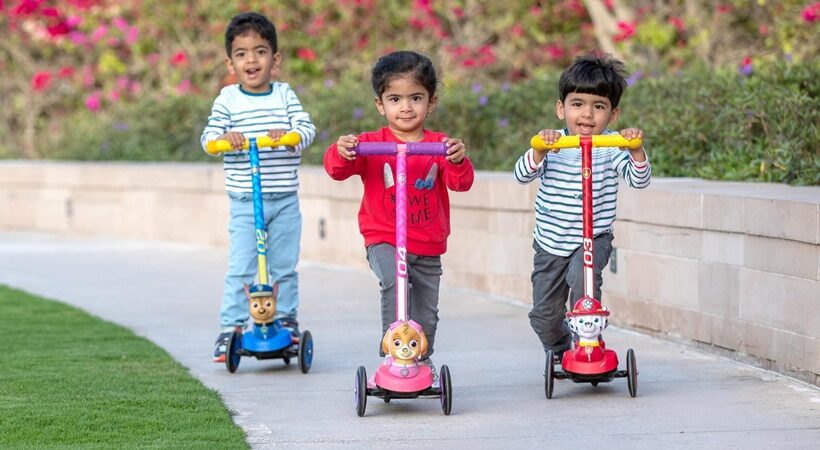Ministry of Education (MoE) has introduced a ‘Child Protection Unit’ for the benefit of students of government and private schools across the UAE. The initiative is aimed at protecting children from all forms of harm, negligence and abuse that they may experience at school or home and maintaining their safety with regard to their physical, psychological and educational aspects.
Child protection committee and centre
Ministry of Interior (MoI) established the Higher Committee for Child Protection in 2009 and the MoI’s Child Protection Centre in 2011 to develop, implement the initiatives. It looks after the safety, security and protection of all children living in the UAE or even those coming as visitors. The committee plays a key role in maintaining the safety of children.
Children’s rights
Federal Law of child rights, also known as Wadeema’s Law, implies that all children must be provided with appropriate living standards, access to health services, education, equal opportunities in essential services and facilities without any kind of discrimination. The law protects children against all forms of negligence, exploitation, physical and psychological abuses.
Smoking in public where children are present is also prohibited under the law. Violators will be subject to penalties as set out by the law.
The law allows childcare specialists to remove children from their homes against parents’ wishes and without judicial permission in cases of immediate danger. In less severe cases, specialists may visit the child regularly and provide social services and mediate a solution between the family and the child.
Those who put children in danger, abandon them, neglect them, leave them without supervision, do not enrol them in school, or register them upon their birth will be subject to a prison sentence or a fine or both. The law applies to all children up to the age of 18.
The right to citizenship
Conditions to gain citizenship in the UAE are very strict. Paternity prevails and only children born of UAE fathers (citizens) can acquire UAE nationality at birth. Emirati women married to foreigners have no right to pass on their nationality. When such children are not allowed to acquire the nationality of their fathers, they face statelessness and therefore suffer many rights violations.
However, the situation has improved since February 2012. These children can now apply for UAE citizenship when they reach the age of 18. Although this reduces the inequality between men and women, the situation is not ideal as many minors remain unprotected throughout childhood.
Right to education
The children of foreign workers are mostly from non-Arab countries like India or Bangladesh etc. There are a few challenges as well to introducing these children to the educational system in the country. The Emirati government has allowed the establishment of community schools with different syllabi that will be taught in different languages.
These private schools can certainly help children of foreign origin to catch up with their studies when they return to their country of origin. But this educational policy does not make allowances for the involvement of foreign children in Emirati society.
Child trafficking and forced labour
Children from a few regions like Asia were kidnapped or sold by their families at the age of 4 or 5 years to be used as camel jockeys (a sport that is widespread in the Gulf region). Some children were deprived of food and sleep that stunted their growth and prevented weight gain because they were forced to work for long hours and in very harsh conditions. Such acts of torture had irreversible consequences on the health of the children, and could sometimes result in death before the age of 11.
In 2005, the UAE compensated, assisted and repatriated child victims of trafficking with the support of UNICEF. The serious consequences of these practices can be seen in children who had previously been victims.
Child abuse and juvenile justice
In the UAE, corporal punishment is prohibited in schools but still allowed within the homes of the children and might in future be made a crime worthy of punishment.
Corporal punishment or physical punishment is intended to cause physical pain to a person. When it is inflicted on minors, especially at home and in school settings, its methods may include spanking or paddling. When it is inflicted on adults, it may be inflicted on prisoners and slaves.
According to UAE law on juvenile offenders, beating may be imposed for a child over 16 years for the crime of murder, assault and alcohol-related offences, theft or illicit sexual intercourse outside marriage. Sharia principles also permit corporal punishment of young children as the age of criminal responsibility is set 7 years, which is below the recommendations of the Committee on the Rights of the Child.
Child marriage
The legal age for marriage in the UAE is 18 years for all. Under UAE Sharia law, marriage is the legal requirement through which a couple can establish a relationship, cohabitate and have children together. This applies to all couples living in the UAE.
Restrictions
Anyone under the age of 17 is restricted from working in certain places such as underground mines and quarries. They are also barred from works related to the extraction of metals, stones and rocks or working in furnaces used for melting, refining and producing metals or working in Oil refineries or working before the ovens of bakeries or working in Cement plants or working in ice and cooling factories or running, controlling, or repairing motor machines or cleaning the same while running.



















